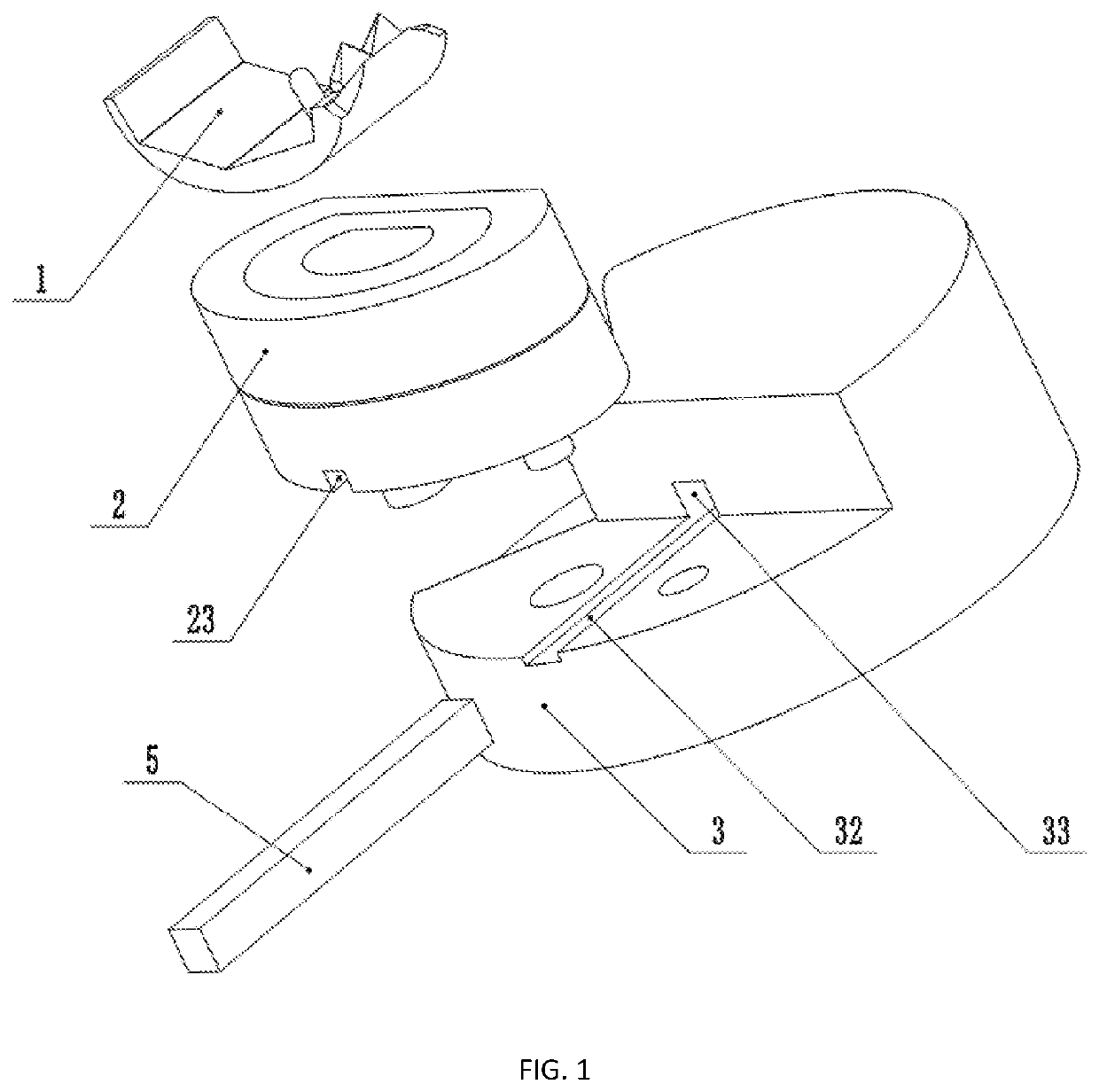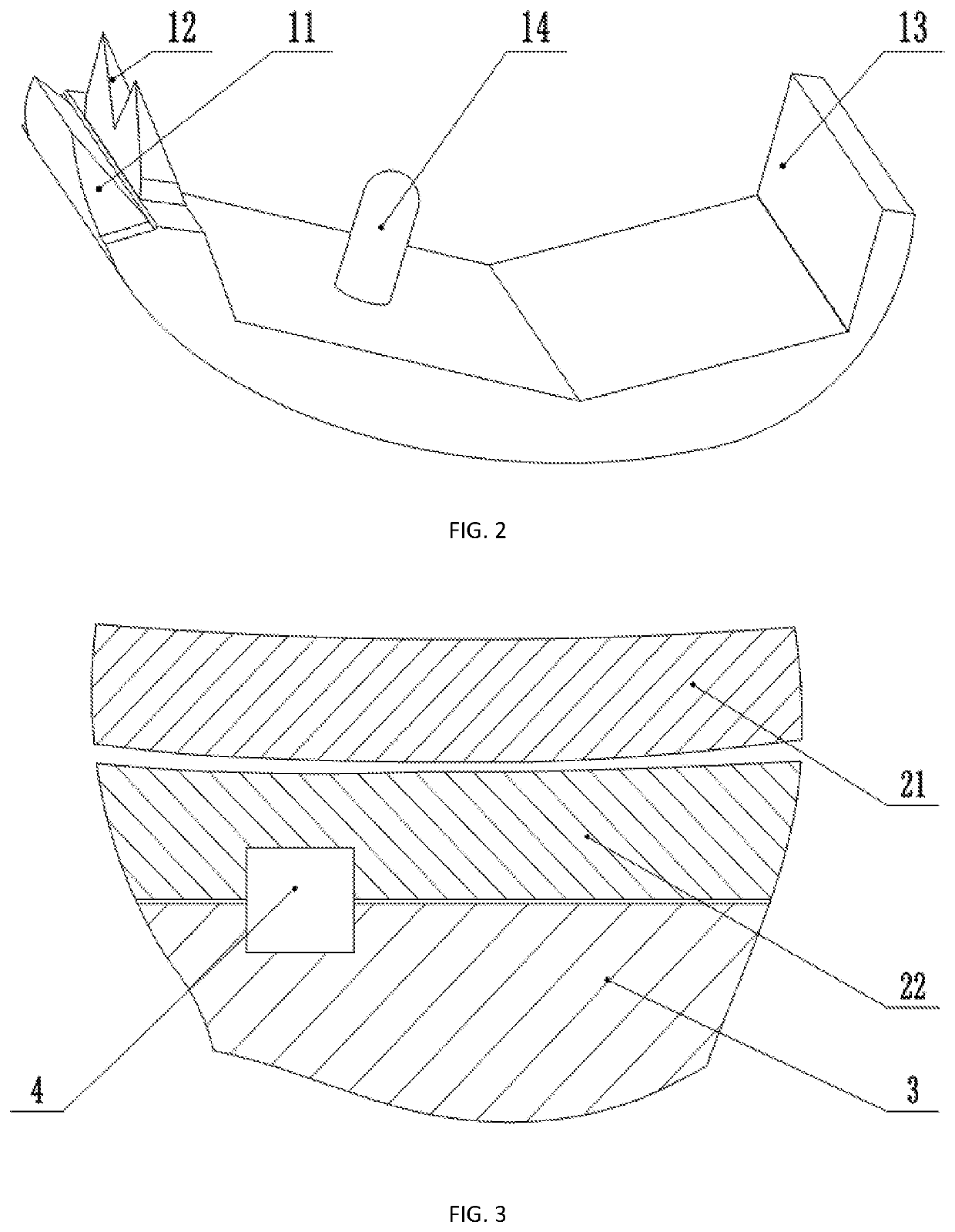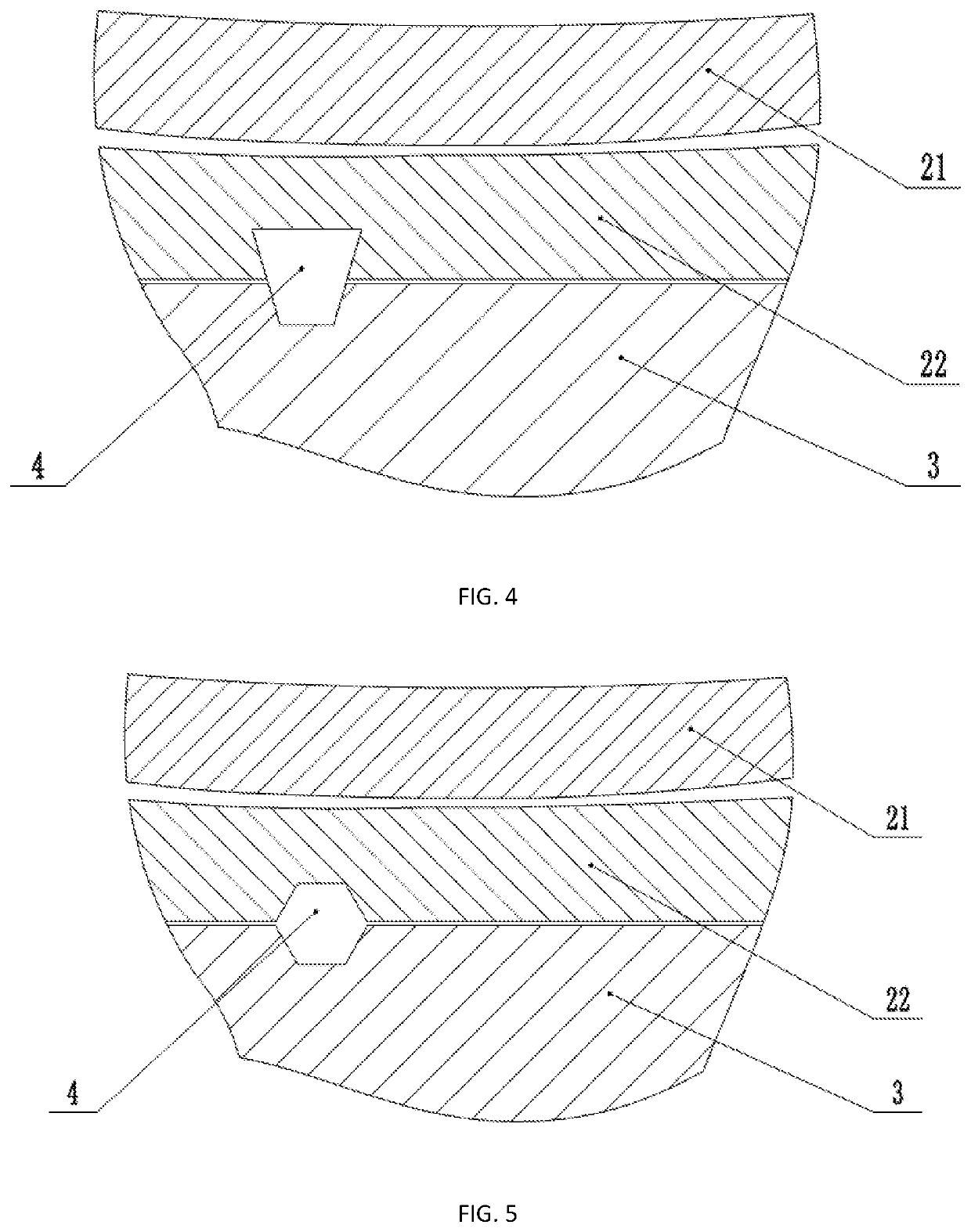Hemi-condyle type artificial knee joint
a knee joint and hemicondyle technology, applied in the field of medical artificial joint prosthesis, can solve the problems of not meeting the above requirements, the absence of cruciate ligaments and menisci in the knee joint after surgery, and the inability to achieve the desired recovery effect after such an operation, etc., to achieve good effect, simple fixation method, and balanced force
- Summary
- Abstract
- Description
- Claims
- Application Information
AI Technical Summary
Benefits of technology
Problems solved by technology
Method used
Image
Examples
Embodiment Construction
[0075]Hereinafter, the present invention will be explained in more detail with reference to figures and examples. Through these explanations, the features and advantages of the present invention will become clearer.
[0076]The term “exemplary” as used herein is intended to be “serving as an example, an embodiment, or an illustrative embodiment”. Any of the embodiments described herein as “exemplary” need not be construed as preferred as or better than other embodiments. Although various aspects of the embodiments are shown in the figures, it is not necessary to draw a figure in proportion unless otherwise specified.
[0077]The semi-condylar artificial knee joint provided according to the present invention is shown in FIG. 1. The artificial knee joint includes a femoral prosthesis 1 and a tibial prosthesis 2, wherein, the femoral prosthesis 1 is disposed at the lower end of the femur 8 and replaces a part of the bone structure at the lower end of the femur, and the tibial prosthesis 2 is...
PUM
 Login to View More
Login to View More Abstract
Description
Claims
Application Information
 Login to View More
Login to View More - R&D
- Intellectual Property
- Life Sciences
- Materials
- Tech Scout
- Unparalleled Data Quality
- Higher Quality Content
- 60% Fewer Hallucinations
Browse by: Latest US Patents, China's latest patents, Technical Efficacy Thesaurus, Application Domain, Technology Topic, Popular Technical Reports.
© 2025 PatSnap. All rights reserved.Legal|Privacy policy|Modern Slavery Act Transparency Statement|Sitemap|About US| Contact US: help@patsnap.com



